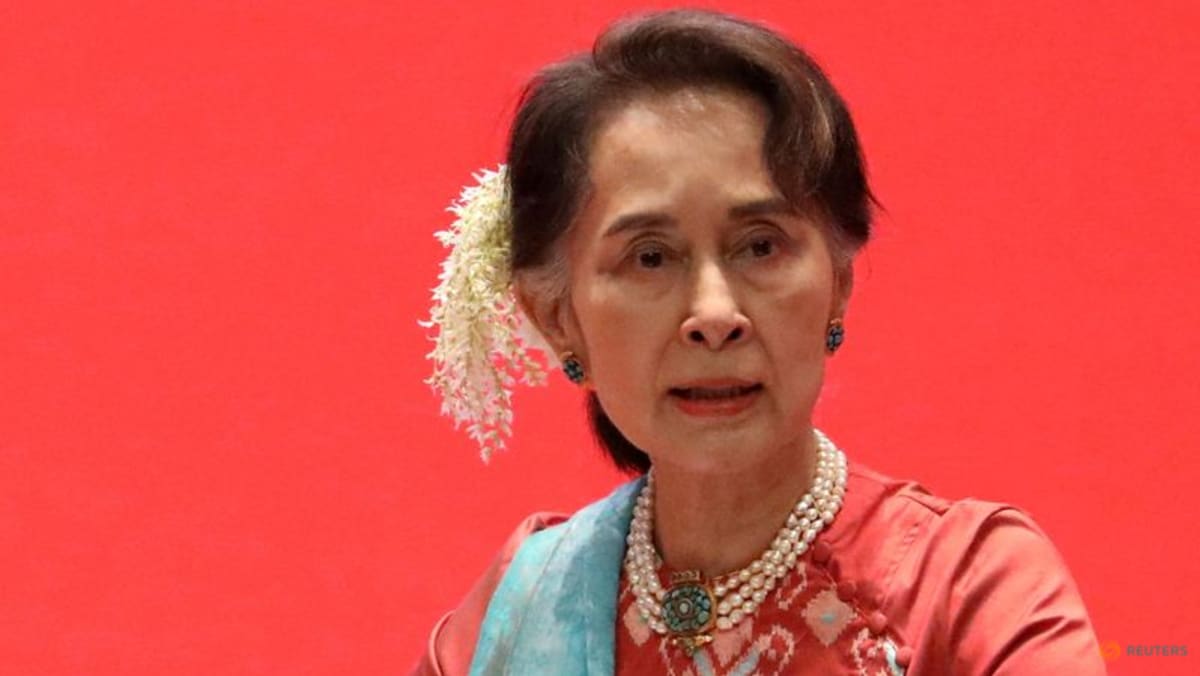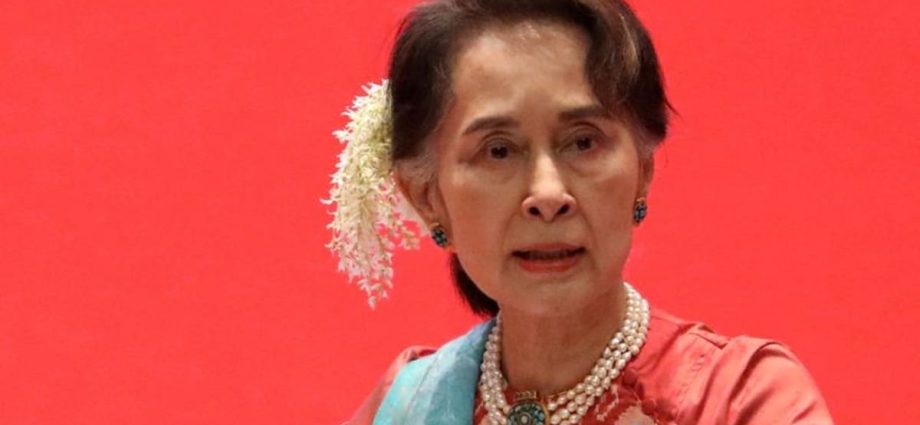
Myanmar’s former leader Aung San Suu Kyi will be pardoned for five of the numerous offences for which she was jailed for a total of 33 years, state media reported on Tuesday (Aug 1), adding that she still faces 14 other charges.
Ousted president Win Myint was also given a partial pardon as part of an amnesty of more than 7,000 prisoners to mark Buddhist Lent.
“Chairman of State Administration Council pardons Daw Aung San Suu Kyi, who was sentenced by the relevant courts,” state media said in a broadcast.
Myanmar frequently grants amnesty to thousands of prisoners to commemorate holidays or special Buddhist dates.
Aung San Suu Kyi, who last week moved from prison to house arrest in the capital, Naypyitaw, has been in detention since the military seized power in a coup in early 2021.
She has been sentenced to 33 years in jail for a clutch of charges, including corruption, possession of illegal walkie-talkies and flouting COVID-19 restrictions.
“She couldn’t be freed completely although some sentences against her were pardoned. She still has to face 14 cases. Only five cases out of 19 were pardoned,” a legal source said.
Myanmar Radio and Television reported the pardons on Tuesday but an informed source said she would remain in detention. “She won’t be free from house arrest,” said the source, who declined to be identified due to the sensitivity of the issue.
Aung San Suu Kyi, 78, the daughter of Myanmar’s independence hero, was first put under house arrest in 1989 after huge protests against decades of military rule.
In 1991, she won the Nobel Peace Prize for campaigning for democracy but was only fully released from house arrest in 2010. She swept a 2015 election, held as part of tentative military reforms that were brought to a halt by the 2021 coup.
She has only been seen once since she was held after the February 2021 putsch – in grainy state media photos from a bare courtroom in the military-built capital Naypyidaw.
The coup plunged the Southeast Asian nation into a conflict that has displaced more than a million people, according to the United Nations.

